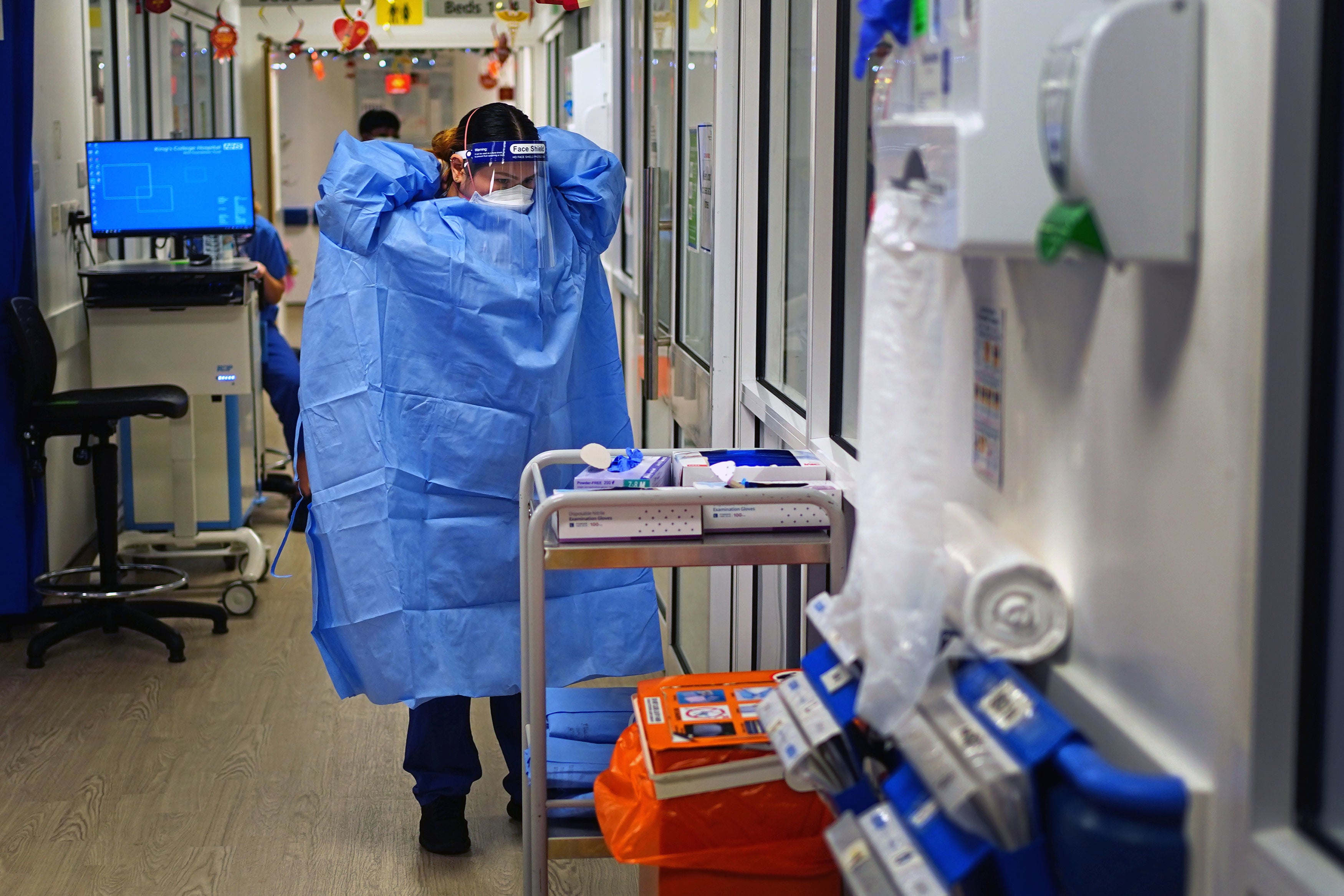Spending watchdog warns £2.7 billion at risk from government PPE contracts
Chair of public accounts committee says government must ‘get a grip’ of PPE stocks and contracts

An estimated £2.7bn of taxpayers’ money is at risk from government PPE contracts, with millions being spent on items in storage, a new report by the National Audit Office has warned.
The public spending watchdog said the Department of Health and Social Care (DHSC) was still dealing with the result of emergency procurement decisions during the Covid pandemic, with 3.6 billion items deemed unsuitable for use currently in storage.
In total 14.2 billion items of PPE remain in storage – at an estimated £7m-a-month cost – with DHSC attempting to reduce excess stock by selling, repurposing, donating, or recycling equipment.
Over half (53 per cent) of the 51 VIP lanes suppliers – firms suggested by government officials, ministers’ offices, MPs and health staff – provided some PPE that the government considers not currently suitable for frontline services, the body added.
In its report, the NAO stated: “The department is managing 176 contracts where it believes it may not achieve full value for money, with an estimated £2.7bn at risk.
“The total value of these contracts is £3.9bn, but the department’s assessment is that not all of this money is at risk as at least some PPE from these contracts may have passed quality checks.”
Responding to the “staggering” figures, the chair of the Public Accounts Committee, Meg Hillier, said that DHSC must urgently “get a grip” of PPE stocks and contracts while Angela Rayner described it as the “latest shameful chapter in the government’s cocktail of sleaze and incompetence”.
The report by the NAO into the management of PPE contracts found that two years on from the start of the pandemic, the department was still dealing with issues over some of the almost 10,000 contracts drawn up to purchase almost 38 billion items at a cost of £12.6bn.
The watchdog recognised that officials had rushed to buy equipment in an “extremely over-heated global market, with desperate customers competing against each other, pushing up prices and buying huge volume of PPE”.
In order to secure the “unprecedented amount” of items needed, ministers established two new procurement routes, including the parallel supply chain in late March 2020 and the UK Make route in April 2020 to purchase PPE specifically from UK-based manufacturers.
While 9,492 contracts worth £5.2bn were agreed through the existing NHS supply chain, a further £7.9bn was awarded across 394 contracts through the two new routes, the NAO report detailed.
Of the 394 contracts, 115 of those went to 51 VIP lane suppliers and 46 of these contracts did not go through full due diligence checks, which were only put in place from May 2020 onwards, but some measures were in place.
The report said DHSC paid out £2.5bn to suppliers upfront – before PPE was received – to “prevent contracted PPE being gazumped while in transit”. Five of those upfront payment contracts, worth £19m, are at risk of not being delivered, the report said.
Of the PPE which has been received, 17.3 billion items (55 per cent) have been sent to frontline staff, but 14.1 billion items – worth £8.5bn – remain in storage, either in one of 50 warehouses, with suppliers, or in shipping containers.
By November 2021 it had cost the government £737m to store PPE. Some £436m of that was penalty charges, because DHSC could not move the items out of shipping containers in time.
Gareth Davies, the head of the NAO, said: “The Department of Health and Social Care is still dealing with the results of its emergency procurement decisions, some two years after it first needed to rapidly buy PPE in unprecedented circumstances.
“The department is continuing to manage 176 contracts where it believes it may not achieve full value for money, with an estimated £2.7bn at risk”.
The chair of the Commons Public Accounts Committee, Ms Hillier added: “The numbers are staggering – over 30 billion items of PPE received so far with 5 billion more on the way and 3.6 billion items that can’t be used by front-line services. Storage alone has cost over £700m, with DHSC continuing to spend £7m a money storing PPE it doesn’t need.
“Whatever forbearance the taxpayer may have had at the start of the pandemic, this will quickly wear thin if DHSC can’t now manage the consequences. The department must urgently get a grip of its PPE stocks and focus on protecting value for taxpayers. It has to claw back contract costs where it can, get rid of unusable PPE, and cut down on expensive storage.”
A DHSC spokesperson said: “Our priority throughout the pandemic has been saving lives, and we have delivered over 19.1 billion items of PPE to frontline staff to keep them safe.
“Having too much PPE was preferable to having too little in the face of an unpredictable and dangerous virus, given this was essential to keep our NHS open and protect as many people as possible.
“Where contracts are in dispute, we are seeking to recover costs from suppliers and we expect to recover significant amounts of taxpayers’ money.”


Join our commenting forum
Join thought-provoking conversations, follow other Independent readers and see their replies
Comments